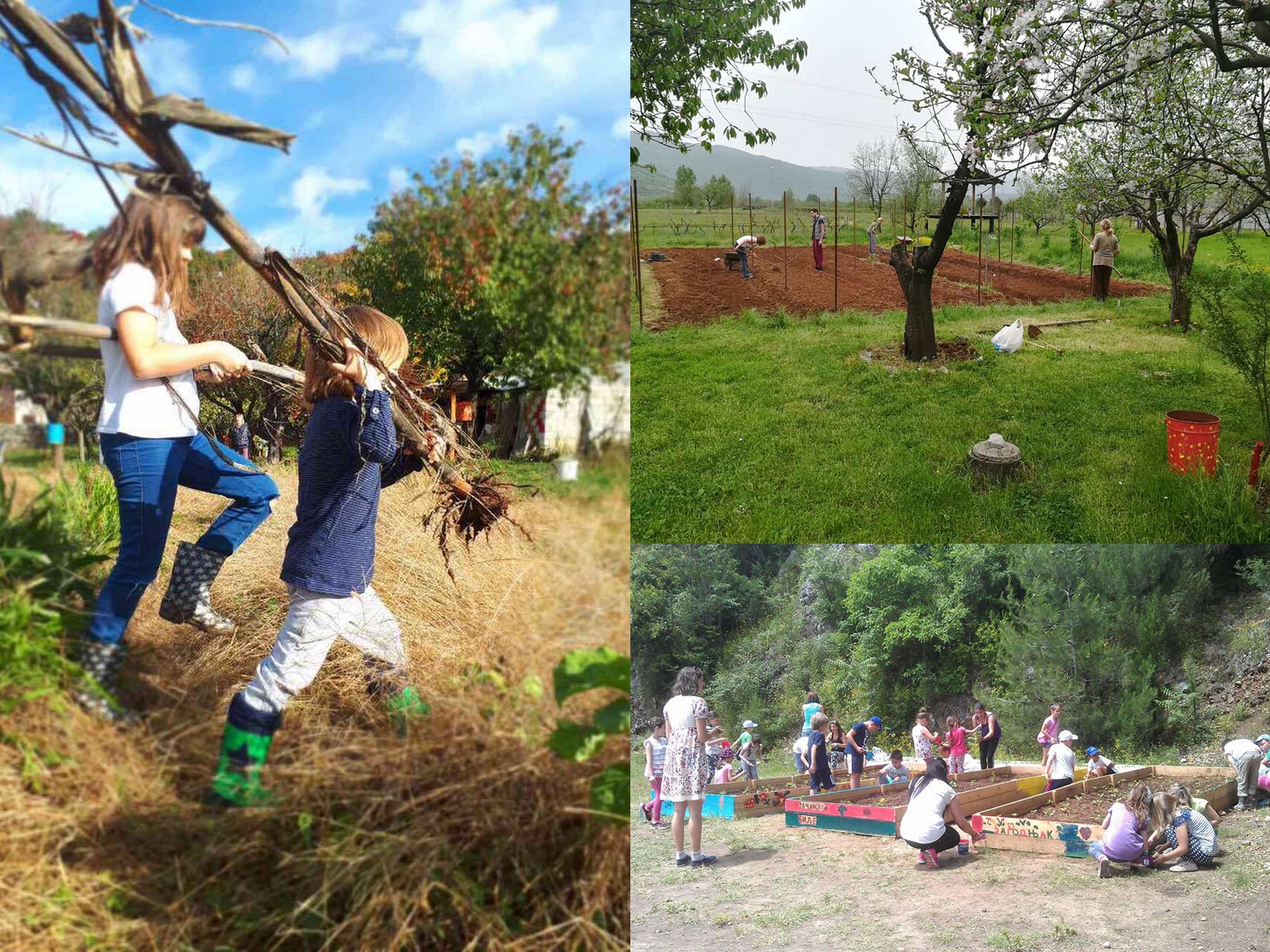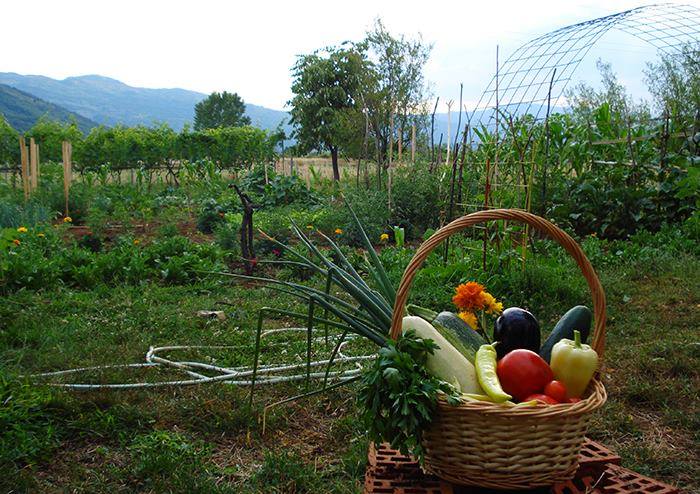AgriGo4Cities - GOOD PRACTICE EXAMPLE: Bašta Ekologika
18-05-2018
Bašta Ekologika – Education for a Healthy Lifestyle
Montenegro, officially named the Republic of Montenegro, belongs among the smallest and youngest European nations. With less than 700.000 inhabitants Montenegro declared independence only in 2006. However, this sovereign state in Southeastern Europe still faces economic and social difficulties. Despite this fact, environmental issues are not underestimated and examples of good practices for the enhancement of the environment can be found in this area. In fact, only 7 km away from the center of the capital called Podgorica, Bašta Ekologika situated in the Mareza district, where the river of the same name originates, can be discovered. It is an allotment, more specifically a herb garden, where an ecological culture dominates.

In 2014, a group of young people, led by the co-founder Aleksandar Novovic, decided to create a community garden which brings up the idea of an eco-sustainable community. «Our is the first urban garden initiative in Montenegro», said Novovic. Bašta Ekologika aims to be a place of social interactions, where the sense of community increases. Moreover, it brings the local population closer to a healthy lifestyle and preserves the surrounding context. The garden hosts nature lovers, people who want to protect the ecosystem and create an alternative to the vision of modern man, consumerist and frenetic. They all have fun sharing their experience with each other and improving their personal skills.
«In the last 4 years we are trying to model our urban garden creating social contents, exploring and experimenting different garden techniques and urban solutions – said Aleksandar Novovic, adding – everybody creates their own garden as they want, organizing self-initiatives to promote and spread the ecological idea».
In this community garden workshops and events especially for children and young people are frequently organized in order to educate new generations to respect the environment and sustain contact with nature. Right now documentary movie nights about permaculture, ecology, sustainable development of the cities and social movements widespread are scheduled. The main idea that guides the entire initiative is that the education to a large extent contributes to changes in the world.

«Each year there are about 15-20 full-time activists/gardeners with their friends and relatives, and probably about 200 visitors/participants in our workshops – declare Aleksandar Novovic, continuing – the biggest challenge is to show the connection between ecology, green culture, sustainable development and everyday life. Most people in Montenegro still don’t understand the importance of these subjects. This is a paradox because, according to the Constitution of Montenegro, our state is officially “Ecological state”.
The community garden has the ambitious goal of creating a network of urban gardens and more generally of self-organized structures, implementing permaculture principles in urban food production.
Bašta Ekologika is doing a “green revolution” where the bottom-up approach is used. It is a drop in the ocean that looks for its own space between the difficulties and which seeks to involve as many people as possible, change the unhealthy habits that are often brought forward.
Aleksandar Novovic states: «The positive aspect of being part of this initiative is that we are doing something truly good and useful for us personally and for the whole society. Every day we are becoming aware of a lot of problems, but also of many solutions». This is achieved in complete autonomy, Novovic indeed highlights: «Until now we haven’t had any kind of support from public institutions. They still don’t recognize all potentials of this idea, but we are patient, and we tend to work as hard as possible. Until now, we have already shown that we can achieve a lot of results even without support».
As Albert Einstein said: «Civilization has failed, we must build a new humanism, otherwise the planet will not be saved», Bašta Ekologika is trying to do it.
By Francesco Morra
